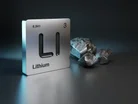Rio Tinto eyes Arcadium Lithium in Battery Metals Move

Anglo-Australian mining corporation Rio Tinto has initiated discussions to acquire Arcadium Lithium, signalling a strategic move into the battery metals sector.
The potential transaction emerges as mining companies intensify their focus on materials essential for electric vehicle production. Rio Tinto operates mines across six continents and generates annual revenue exceeding $55 billion.
Rio Tinto, headquartered in London, UK, has a long history of operations in Australia, where it is one of the largest producers of minerals, including iron ore, bauxite, and aluminium. It is involved in the exploration, mining, and processing of a wide range of minerals, including iron ore, aluminium, copper, diamonds, gold, and uranium.
Chief Executive Jakob Stausholm has said Rio Tinto has been evaluating lithium acquisitions. "We maintain an active interest in the lithium sector," the FT quotes Stausholm as saying.
Both organisations confirm the approach remains non-binding. Financial terms have not been disclosed to the market.
Arcadium Lithium drives industry interest
Arcadium Lithium, formed through the merger of Allkem and Livent in 2023, operates lithium production facilities in Argentina, Australia and Canada. The company maintains processing operations in China, the United States and Japan.
The World Economic Forum, an international organisation for public-private cooperation, reports each electric vehicle battery requires approximately eight kilograms of lithium carbonate equivalent.
Lithium, a lightweight metal, is a critical component in rechargeable batteries. These power sources enable the function of mobile phones, laptops, digital cameras and electric vehicles
Market dynamics shape response to Rio bid
Blackwattle Investment Partners, an Australian asset management firm overseeing $2.5 billion in investments, expresses reservations about the timing of Rio Tinto's approach.
Michael Teran, Deputy Portfolio Manager at Blackwattle Investment Partners, suggests the offer may be opportunistic. "Rio Tinto would need to propose a valuation near $8 billion to deliver value to shareholders," Teran says.
Lithium prices have decreased in 2024 due to increased supply. Arcadium's share price declined 60 per cent prior to the takeover announcement.
The company's market capitalisation stood at $3.3 billion before news of Rio Tinto's interest became public.
Battery metal supply impacts automotive sector growth
Arcadium Lithium supplies major automotive manufacturers including Tesla, BMW, Toyota and General Motors. Industry projections position the company as the third-largest lithium producer globally by 2027.
The automotive sector faces uncertainty regarding lithium supply. Analysts predict material shortages as vehicle manufacturers transition to battery power.
Rio Tinto's move comes in the wake of comments from one of the world's foremost lithium influencers, who says the West must wrest control of the lithium supply chain from China by turning its high-quality resources into a long-term competitive advantage
Patriot Battery Metals CEO Ken Brinsden says that currently, the lithium industry is facing a period of low prices that is threatening to hinder the development of new mines.
Brinsden argues that current lithium prices are unsustainable in the long term, as Western countries attempt to wrest control of the market from China.
He was speaking as Patriot Battery Metals – a hard-rock lithium exploration company – recently released a preliminary economic assessment for its Shaakichiuwaanaan project in Canada.

